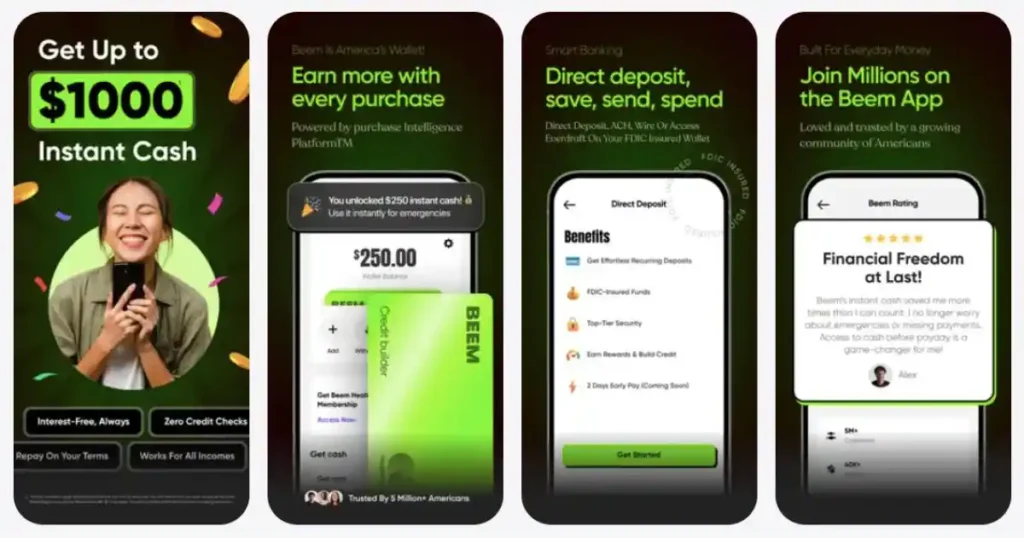Table of Contents
Are you looking for the best free and cheap ways to upskill on a tight budget? Upskilling doesn’t have to be expensive. You can discover practical and effective ways to boost your skills without breaking the bank and look to advance your career without draining your bank account. You’re not the only one. Many individuals feel compelled to enhance their skills to stay competitive but believe learning costs money. The best part? It doesn’t. You don’t have to spend money on a costly degree or course to advance. You can acquire practical skills without investing much with the right resources and attitude.
In this blog, you will discover the best free and affordable ways to upskill to build your confidence, expand your resume, and own your future.
Affordable Strategies to Upskill on a Tight Budget
Upskilling is easier than ever, thanks to the internet and community resources. Here are some practical ways to learn and grow without breaking the bank. Start with free online courses on websites like Khan Academy, edX, and Coursera. From business skills to coding, these websites offer it all. Another great resource is YouTube, which has tutorials on practically every topic. Don’t forget your local library—it generally gives free access to books, e-learning sites, and courses.
You may also go to free webinars or neighborhood gatherings to hear directly from the professionals. Practical experience can be gained by volunteering for initiatives or creating your portfolio. Online forums and professional networking organizations offer peer support, job recommendations, and mentorship. Inquire about free internal training or mentoring from your company if you are currently employed. These inexpensive techniques benefit your career and personal growth in the long run, in addition to saving money.
Many other free courses are available on different aspects of the business development process, from bookkeeping to marketing, such as Learn With Start-up Loans, Coursera, and Google Digital Garage.
Tap Into Free Online Courses and Learning Platforms
Enroll in free courses on popular online platforms to gain in-demand skills and certificates at no cost. Websites like Coursera, edX, Khan Academy, Udemy, and Alison offer thousands of courses across topics such as coding, business, finance, design, and soft skills. Many platforms partner with top universities and companies like Google, IBM, and Harvard, so the content is credible and current.
You can learn at your own pace, making it easy to fit education into your schedule. Some platforms also offer free trials or let you audit classes for free, with optional paid certificates. These certificates are valuable additions to your resume or LinkedIn profile and show employers you’re committed to continuous learning. Whether switching careers, preparing for a job interview, or just curious, free online courses are among the most innovative and affordable ways to upskill today.
Some online tools also provide access to product training resources and training courses on business subjects like marketing and data analysis.
Some of the most popular sites for low-cost online learning include:
- Alison focuses on language, engineering & construction, personal development, teaching, and academics.
- The Open University focuses on health, sports and psychology, money and business, history, and the arts.
- Free Online Courses covering mental health, business, and digital skills.
- Sometimes, free training is also offered as part of any platforms or packages you might have bought as a business, so check and use these free courses!
Read related blog: How to Upskill and Grow Into a Project Manager: Skills, Steps & Career Guide
Leverage YouTube Tutorials and Educational Channels
Use reputable YouTube channels for high-quality, self-paced learning on various topics. YouTube offers thousands of free courses through Ali Abdaal, CrashCourse, Simplilearn, and freeCodeCamp. There are dozens of free videos on YouTube for every subject you wish to study, including marketing, writing, coding, photography, and personal finance. Channels like The Futur, CrashCourse, Simplilearn, freeCodeCamp, and Ali Abdaal break down complex concepts into manageable courses.
You learn at your own pace, you can replay lessons, and you get to practice along the way. In contrast to regular courses, YouTube enables you to learn a particular skill fast without enrolling or committing to an entire program. Most creators also offer real-life illustrations, downloadable materials, and comment sections where you can pose questions or network. This makes YouTube an affordable, interactive, and convenient method of ongoing learning. All you have to do is select content from reliable channels with good feedback and recent uploads. With a good playlist, YouTube is as effective as any paid learning site.
Attend Free Webinars, Workshops, and Local Library Events
Participate in webinars, library workshops, and community seminars to learn from experts and network with peers for free or at minimal cost. These gatherings are excellent for gaining practical advice, experience, and current knowledge of business trends. Professionals and organizations discuss professional progress, technology, writing, and entrepreneurship in free virtual webinars on sites like Zoom or LinkedIn.
Local libraries usually have free workshops on computer skills, resume construction, and money management. Nonprofits and community centers also host seminars or training programs presented by experts in your industry. These sessions allow you to meet with trainers, pose questions, and network with others who have similar objectives.
Not only do you get to upgrade reasonably, but you also enrich your professional network. Participating actively may get mentored or picked up by employers. Knowing what to expect from future events is as simple as logging on to your local library or online community bulletin boards.
Utilize Public Libraries and Free Resources
Borrow books, access digital resources, and join study groups at your local library to expand your knowledge affordably. Public libraries hold a wealth of educational materials that go well beyond books. Many offer free access to software tutorials, online courses, CDs, eBooks, and research databases. Some libraries offer patrons free, excellent educational materials through partnerships with websites such as Gale Courses, OverDrive, and LinkedIn Learning.
Free workshops on language learning, computer skills, and resume writing also exist. Numerous libraries provide community discussion circles or study groups, which can improve your learning by giving peer assistance. The library provides a calm, resource-rich setting for concentration and development, whether learning a new subject or honing your current abilities.
Remember to speak with the librarians. They are typically informed and eager to help you find the best learning resources. Best of all, everything is free or very low-cost.
Read related blog: How Therapists Can Become Clinical Supervisor – Steps & UpSkill
Join Professional Networking Groups and Online Communities
Engage with professional groups or industry forums to access mentorship, free resources, and peer learning opportunities. Joining these online and off networks is a great way to network with like-minded individuals, further your career, and learn about current developments in the field. You can find communities in various professions, sectors, or competencies on websites like LinkedIn, Reddit, Slack groups, Facebook Groups, and Discord servers.
These communities allow users to ask questions, share ideas, comment on projects, and acquire employment leads. Most groups also provide free resources, including webinars, templates, and instructions. Professional associations will offer free or reasonably priced access to online events, newsletters, and mentorship programs.
Participating actively allows you to build relationships that may open up new possibilities in addition to learning from others.
Volunteer or Take on Personal Projects for Hands-On Experience
Gain practical skills by volunteering for projects or starting your portfolio work, demonstrating your abilities to future employers. Practical experience is among the most potent methods of upskilling, and you do not always require a paid job to find it. Give away your time and skills to charities, community organizations, or small businesses needing assistance in your area of expertise—marketing, web development, writing, or event management.
Volunteering allows you to put what you’ve learned into practice in actual life while contributing to society. Doing so also creates a work portfolio that proves your skills, initiative, and dedication. If there are no volunteer opportunities around, create your project. Establish a blog, build an app, create a website, or maintain a social media presence to demonstrate your expertise.
These encounters boost your self-esteem and give tangible examples to include on your CV or in interviews.
Seek Employer-Sponsored Training and Internal Opportunities
Ask your employer about free internal training, mentorship, or job shadowing programs to upskill while working. Most companies provide professional development opportunities for employees to grow and develop future responsibilities. Some might be cross-functional initiatives, online training, in-house training sessions, or free access to purchased certifications.
If you’re unsure what’s available, talk to your boss or the human resources department; they can help you find the correct information. You can also learn about new talents and career opportunities by working on stretch assignments or job shadowing in different departments.
Mentorship schemes are also a good way of learning from colleagues with more experience. They can offer you one-to-one advice, career guidance, and guidance as you progress. Upskilling in your current job saves money and indicates that you are proactive and committed, which can lead to promotion and improved job security. Be constantly learning in your current role.
Read related blog: Ways to Save Money on a Tight Budget
Maximizing Your Upskilling Journey on a Budget
Get the most value from your learning efforts by combining several low-cost strategies and staying consistent. No solution suits everyone, so blend and switch between free online courses, YouTube videos, library materials, and practical projects to build a learning program that suits your objectives and routine. Begin by defining the skills you wish to acquire and pick the easiest tools.
Consistency is the key—dedicate weekly time to concentrate learning, monitor your progress, and revise your plan accordingly. Engage in peer communities, ask questions, and put what you’ve learned into practice by volunteering or working on small projects. Ensure your online presence and CV reflect your skill improvement as you advance.
If you remain dedicated and resourceful, you may consistently improve without exceeding the budget. In addition to being feasible, upskilling on a budget is a wise long-term investment in your future.
Set Clear Skill Goals and Track Progress
Define what you want to learn, choose the most relevant resources, and regularly measure your improvement. Having clear skill objectives provides direction and meaning to your learning process. Choose the specific abilities you want to learn, such as project management, coding, public speaking, or Excel proficiency. Set reasonable deadlines and break these goals into smaller, more manageable activities.
Second, choose the best resources that suit your learning style and budget. This may involve free courses, YouTube tutorials, library books, or mentorship. Make a simple study plan and allocate weekly time to study and practice.
Monitoring your progress is very important. Use checklists, digital monitoring tools, or journals to record what you have learned and areas that require more attention. Reward small achievements to remain motivated. Periodic self-evaluation keeps you on track and guarantees that your efforts translate into tangible growth, making your upskilling effective and worthwhile.
Apply and Showcase Your Skills
Put your new knowledge to use through real-world projects, share your progress online, and update your resume or portfolio to reflect your growth. Putting what you’ve learned into practice matters most; learning is only half the battle. Start with little tasks that let you practice and demonstrate your abilities. Gaining confidence comes from using what you’ve learned in the actual world. Whether you blog about your gained knowledge, share updates on LinkedIn, or display your work on websites like Behance, GitHub, or your own, you can keep track of your progress.
Remember to update your achievements, qualifications, and abilities on your resume and portfolio. This shows prospective employers that you are proactive, committed, and capable. Transforming learning into observable results improves your chances of standing out in a competitive market and solidifies your knowledge.
Stay Accountable and Keep Learning
Create a learning schedule, join study groups, and celebrate milestones to maintain motivation and momentum. Being responsible is most important when achieving long-term success while upskilling on a tight budget. Begin with scheduling a standard routine of regular learning that fits your schedule, 30 minutes daily or some hours a week. Make it an important appointment that you must not skip.
Joining study groups or online forums brings extra support and accountability. You can share ideas, get feedback, and be motivated by others’ success. It also socializes learning and makes it more fun.
Monitoring and celebrating tiny victories, such as finishing a course or being proficient in a new tool, keeps motivation in check. Sharing your successes on LinkedIn or with your connections might boost your self-esteem and open new opportunities. Learning continuously doesn’t have to be challenging if you maintain organization, stay in touch, and keep doing things one step at a time.
Read related blog: Top Financial Strategies for Single Parents or Individuals on a Tight Budget
Conclusion
Upskilling on a tight budget is achievable. With the wealth of free and affordable resources available today, you can improve your knowledge and skills without the financial strain of expensive courses or certifications. Websites that provide free online lessons, YouTube classes, neighborhood library material, and professional communities with networking options allow learning for anyone. You can show development and preparation for a career advancement opportunity through proper goal setting, regular consistency, and utilizing your acquired skills in actual projects.
What matters is learning strategically—blending different resources, monitoring your progress, and presenting your skills to potential employers. To stay competitive in the current workplace, one must be consistent and proactive in learning. Upskilling doesn’t necessarily mean it has to cost you; with the proper tools and effort, you might acquire valuable new skills, advance your career, and reach your professional goals.
You can consider Beem’s Everdraft™ to help with your cash flow. Withdraw $10 – $1,000 of verified bank deposits early, with no credit checks, interest, income restrictions, due dates, or tips. Download the app here!














































